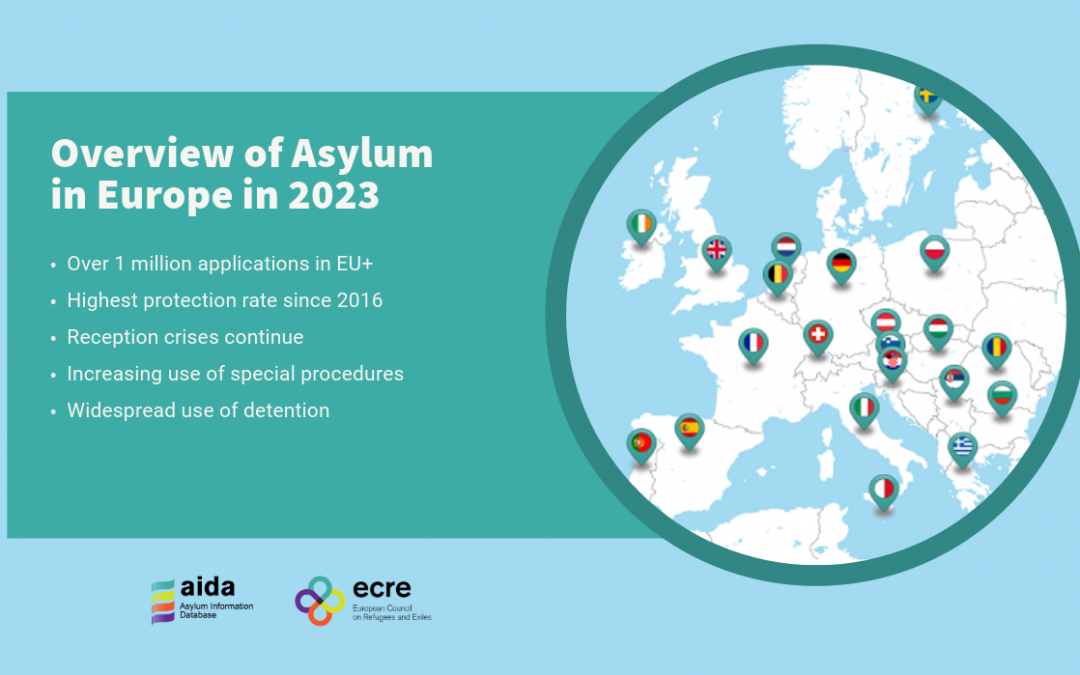The Asylum Information Database (AIDA) is managed the European Council on Refugees and Exiles (ECRE) and contains detailed information on asylum procedures, reception conditions, the detention of asylum seekers and the content of international protection in 23 European countries. It is relied upon by a wide range of actors, including European and national policy-makers, legal practitioners and courts.
AIDA country reports are written by national experts in co-operation with a variety of stakeholders, including civil society organisations, lawyers and national authorities, and edited and verified by ECRE.
The 2024 briefing paper provides key examples of the general trends that could be observed across asylum systems in Europe in 2023 as set out in AIDA:
- Although asylum systems remained in place and functioning across Europe, the rights of people in need of international protection were still being regularly violated and significant gaps in national asylum systems remained.
- There was a continued overall positive response by European countries to the displacement from Ukraine which, although it created additional challenges, also demonstrated that prolonged management of large-scale displacement was still possible.
- Access to asylum the quality and length of asylum procedures remained issues of particular concern.
- Reception systems came under pressure in an increasing number of countries, often due to a lack of sufficiently robust contingency planning and the widespread detention of asylum applicants.
The full briefing paper is available here.
For more information about the AIDA database or to read other AIDA reports, please visit the AIDA website.
See also

